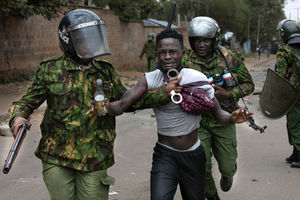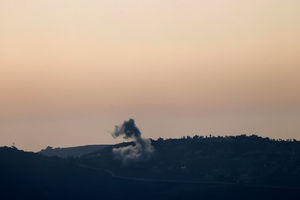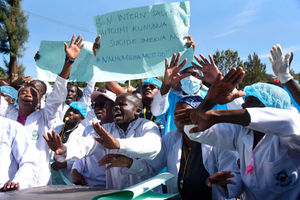FROM THE PUBLIC EDITOR'S DESK : We’re going back to the dark old days
What you need to know:
- “What do you to say about threats by President John Magufuli to media owners and journalists? He has accused them of publishing seditious material and told them to ‘be careful’ and that they were not as free as they imagined.”
On Saturday I got a call from a woman journalist working with one of the up-and-coming media outlets in Dar es Salaam. She asked me:
“What do you to say about threats by President John Magufuli to media owners and journalists? He has accused them of publishing seditious material and told them to ‘be careful’ and that they were not as free as they imagined.”
My answer was simple. “I earnestly ask the President to keep his hands off the media. Let media house owners and journalists do their job. Should there be an occasion where authority finds scribes and their bosses operating contrary to legislation, courts of law are the only known and respectable destination…”
This unassuming reply sprouts from the fruitful struggles for freedom of the press and freedom of expression we have waged since the early 1980s.
It reminds me of my participation in the formulation of the Windhoek Declaration—the 1991 statement of press freedom principles by African newspaper journalists.
For some years, the implementation of the declaration helped, to a great extent, to combat intimidation and imprisonment of journalists, and arrested the rate of official interference and censorship of media in most African countries.
It reminds me of the creation of the Media Institute of Southern Africa (Misa) with roots in my presentation at an international conference at Chobe Game Lodge in Botswana.
Misa created awareness and steered nations into regional cooperation that ensured germination of free press—a fundamental human right essential to participatory democracy in 12 southern Africa countries.
It reminds me of struggles at home where I led journalists through workshops, seminars and conferences for five years and finally convinced the government that journalists, media workers and media owners could regulate themselves.
This resulted in the formation of an independent, voluntary and non-statutory Media Council of Tanzania (MCT) which has, for over 20 years now, propelled self-regulation in media in the country, and remains an institution to emulate in the Commonwealth and beyond. It brings back memories of my travel to Nairobi in 1994 to meet journalists from seven eastern African countries and take them through the processes of forming Misa and, at the end of the conference, lead them to form the Eastern African Media Institute (EAMI).
These institutions and efforts thereunto helped to bring about consciousness and unity of purpose among media stakeholders, and their activities speedily minimized the barbaric official threats on media.
But today, in many African countries, we have started to witness steps being taken to drag us back to the dark old days.
There is a proliferation of laws to plug every hole; block every throbbing vein and even destroy every branch of communication with the purpose of rendering citizens uninformed and therefore ineffective and unquestioning.
Governments can do without critical journalists and media outlets as they can deny them licences. Citizens can be silenced by not giving them information.
But, seriously speaking, curtailing speech is equivalent to asking people to go underground, and this can be a little more expensive and dangerous.
My heart trembles with rage when I see our monumental work trampled on by captives of political ambition —those haunted by the fear of exposure by media and other multifarious channels of communication; those tormented by the failure to meet citizens’ expectations.
They’d rather work in secrecy and from there call journalists whatever name comes their way: “boys” and “girls” devoid of nationalism; saboteurs, irresponsible characters and publishers of seditious material.
Politicians of whatever level and creed have come out to dictate to media outlets what to write, how to write it and what angle the story should take.
We are almost going back to what we rejected, and this is totally unacceptable.
Our president may not do this. He is expected to be well above that.
That is why I plead with him to let the media work without pressure from above. This will afford him credit in governance.
Ndimara Tegambwage is a Public editor with Mwananchi Communications Limited .0763670229




